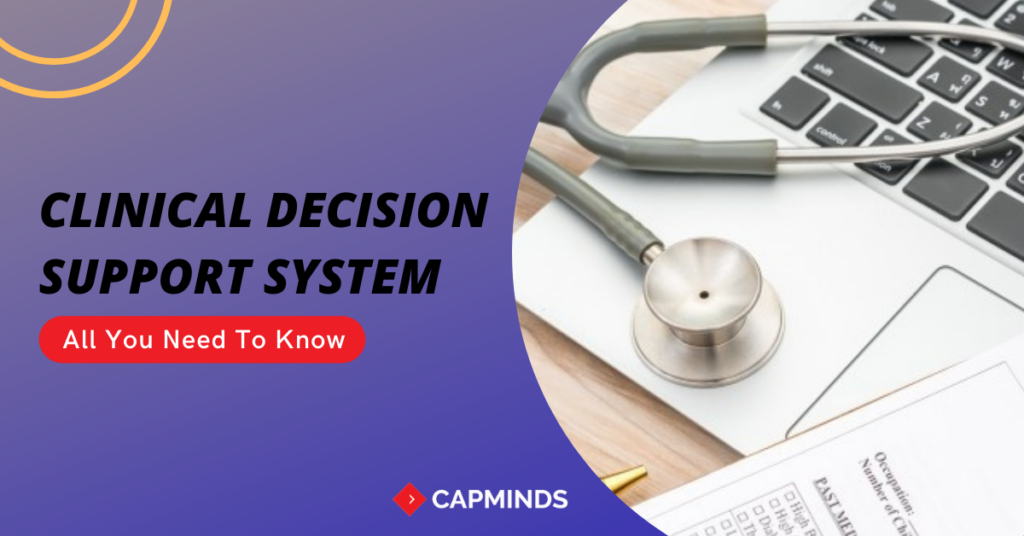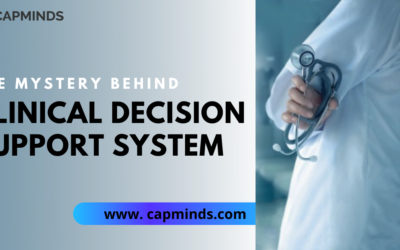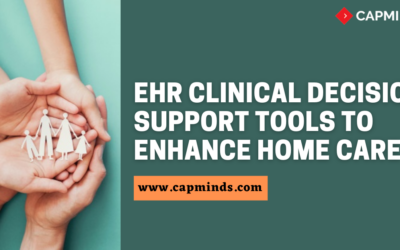What Is Clinical Decision Support System?
Clinical decision support systems have seen a rapid revolution in the healthcare industry today. They are now commonly administered through electronic medical records and other computerized clinical workflows, which have been facilitated by increasing global adoption of electronic medical records with advanced capabilities. In this article, we explained the basics and benefits of a clinical decision support system.
What Is Clinical Decision Support System?
A clinical decision support system (CDSS) is intended to improve healthcare delivery by enhancing medical decisions with targeted clinical knowledge, patient information, and other health information.
CMS says clinical decision support can include any health IT system, workflow, or process intended to deliver:
- the right information (evidence-based guidance, response to clinical need)
- to the right people (entire care team – including the patient)
- through the right channels (e.g., EHR, mobile device, patient portal)
- in the right intervention formats (e.g., order sets, flow-sheets, dashboards, patient lists)
- at the right points in the workflow (for decision making or action)
Healthcare organizations are quickly trying to apply these success keys to their care processes.
Benefits Of Clinical Decision Support System (CDSS)
A reduction in misdiagnoses
As indicated by the Agency for Healthcare Research and Quality, it is assessed that 10-30% of clinical mistakes are errors in diagnosis. Numerous components can cause a misdiagnosis from supplier inclination to remarkable and uncommon infections. Now and then it tends to be as straightforward as the supplier making a mistake in reasoning and judgment.
Misdiagnosis presents an enormous issue as the illness can’t be enough treated until it is precisely recognized. The utilization of clinical decision support tools can incredibly reduce these types of errors and results in better health outcomes for patients.
A reduction in medication errors:
Medication turns out to be considerably more troublesome when managing complex populations, for example, children. Dosing can be muddled to compute. The assortment of formulas expected to make exact computations make having this data accessible at top of the mind especially troublesome. Clinical Decision Support gives doctors quick access to dosing calculators, drug monographs, weights, diseases, etc. This makes it significantly more likely that the proper drug at the right portion will be given the first time.
RELATED: HOW TO PREVENT MEDICAL BILLING AND CODING ERRORS?
Readily available information in one place
The concept of physicians double-checking their assessments with the use of evidence-based knowledge is nothing new. However, the ability to have this information readily available to a provider and the entire care team working on a patient’s case increases the efficiency of this task. By turning to CDS, clinicians can be confident that they are always receiving consistent, reliable information that is relevant to their specific patient. The information provided helps them in making an accurate diagnosis, all without having to spend a great deal of time on research.
Improve efficiency
The task of assessing a patient, making a diagnosis, and deciding on a treatment plan can often be a complex one. This task requires a great deal of thought and, in some particularly complex cases, time. Additionally, when mistakes in diagnosis are made, valuable time and resources are wasted.
It’s estimated by the Institute of Medicine that between 17 and 29 billion dollars annually is spent on inaccurate or unnecessary care as the result of misdiagnosis. This not only negatively affects the patient’s health outcome but also negatively affects the provider’s efficiency and the practice’s bottom line.
By utilizing Clinical Decision Support, physicians have a greater chance of avoiding this kind of issue. The ability to consistently double-check themselves with quality, evidence-based information drastically reduces error. This solves a lot of problems before they even occur.
Cost-Effective System
The CDSS can be cost-effective for health systems through clinical interventions by reducing the inpatient length of stay and reducing test duplication. CDSS can notify the user of cheaper alternatives to drugs, or conditions that insurance companies will cover. It could automatically switch 91.6% of 202 medication consultations, with no errors, increasing safety, reducing workload, and reducing cost for providers.
Final Thoughts
As the clinical Decision Support System continues to evolve with the growing advances in AI, machine learning, and interoperability, the healthcare providers may expect the future of clinical decision support to be more intuitive. When planning for the clinical decision support implementation, the providers should utilize all these benefits mentioned above and concentrate more on the intersection of workflow and analytics.



